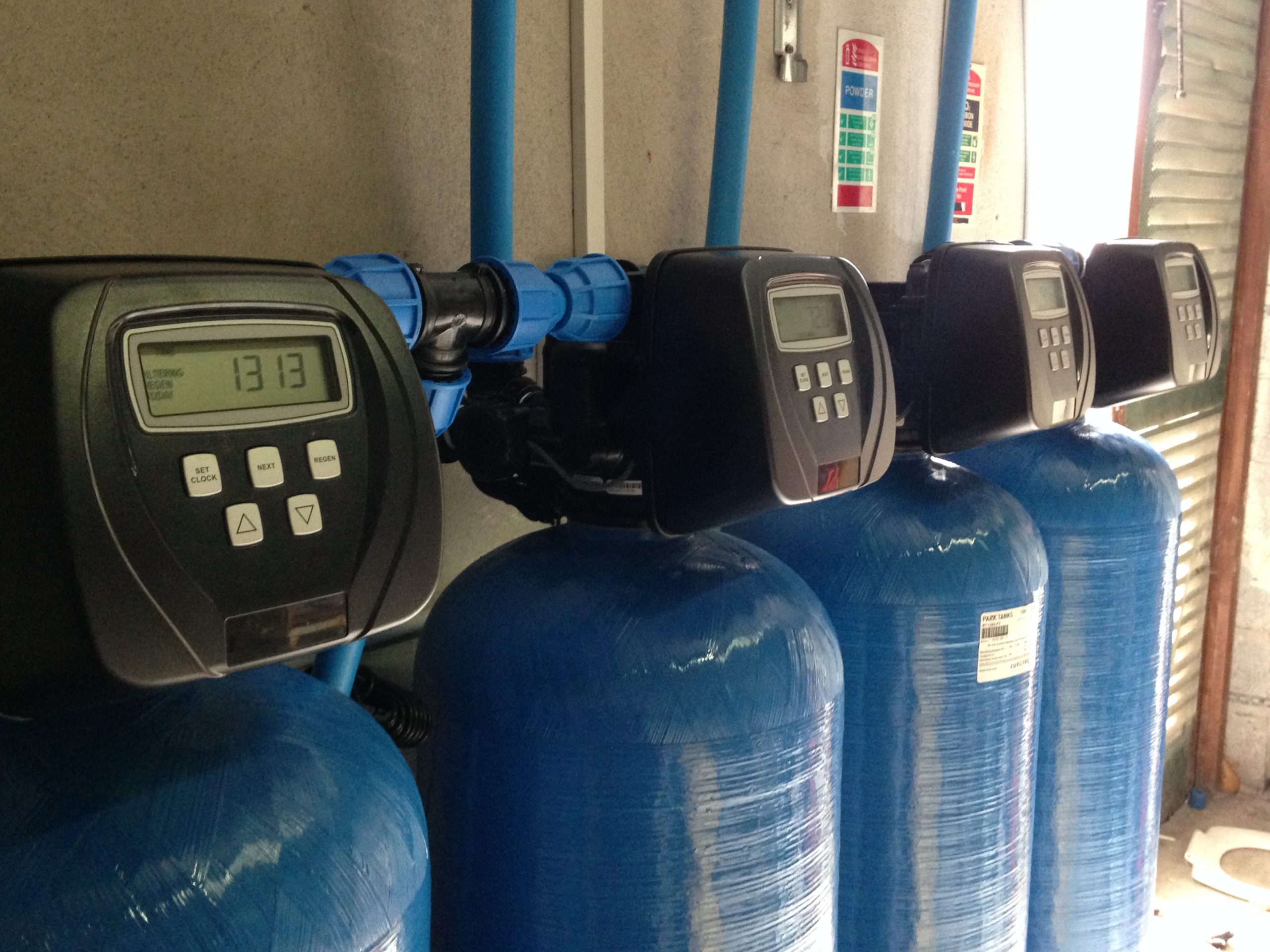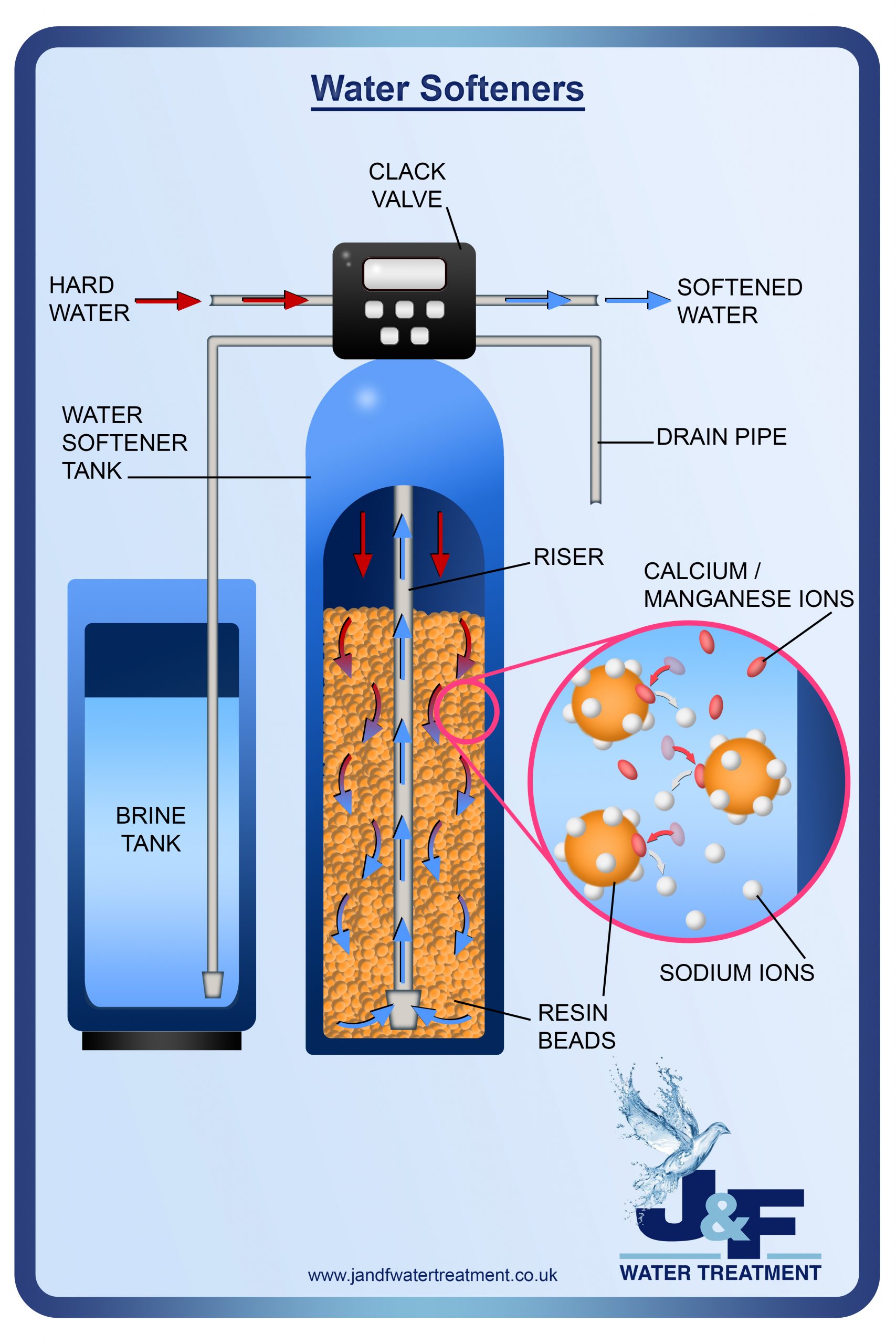Water Softeners
Water Softeners
Water Softeners
Water softeners are a method of treating water that is considered hard. Hard water causes limescale which clogs up pipes, causes build up on tap faucets and shower-heads as well as reducing the effectiveness and lifespan of appliances such as washing machines and boilers. By using a water softener, you can eliminate limescale and prevent all these issues.
Our water softeners are available in a range of sizes, including cabinet water softeners for domestic use, up to duplex systems for commercial water demands.
All of our water softeners are provided with top quality Clack Valves (ranging from 1" up to 3"), brine tanks available in a various sizes and highly effective resin media.
Enquire now
How Does A Water Softener Work?
Water softeners reduce the hardness of water by removing calcium and magnesium carbonates from your water supply. The softened water prevents limescale and ensures a longer life from items such as dishwashers, washing machines, showers and boilers.
Softening water eliminates limescale which stops all the above issues, as well as other benefits such as reduced heating bills, softer laundry and soap that lathers much easier.
How does it work?
Think about how a magnet works. Magnets have a positive and negative charged side. The positive side of one magnet will be attracted to the negative side of another magnet. This, in essence, is how water softening works.
A water softener passes water through an ion exchange resin. This resin is made up of tiny beads which are positively charged with sodium ions. The calcium and magnesium ions contained in calcium carbonate and magnesium carbonate are negatively charged. Just like a magnet, the positive resin beads attract the negative calcium and magnesium ions. In return, the sodium ion is deposited to the carbonate, because again, opposites attract. What you are left with is sodium carbonate in the water which does not cause limescale.
Will the sodium make the water salty?
No. Common salt is sodium chloride, which is what makes something taste "salty." Sodium on it's own does not. The amount of sodium that is exchanged is also incredibly low. Consider that in an average litre of softened water there is approximately 37mg of sodium. Compare that to the 122mg of sodium in a single piece of white bread. If you'll happily eat a sandwich then drinking softened water doesn't even come close to the same levels of sodium. If you must strictly control your sodium intake, then a reverse osmosis system will remove the sodium from the water.
How often can you use the resin?
Eventually the resin will have no more sodium ions left and will be fully packed with calcium and/or magnesium ions. The resin will need to be regenerated in order to be effective. Our water softeners are installed with a brine tank which provides a saltwater solution to the water softener whenever it needs regenerating.
What is the regeneration process?
The regeneration process is split into four cycles. First, the backwash cycle, where water is flushed through the water softener unit, dislodging any large deposits. Second, the down brine cycle which fetches the saltwater solution from the brine tank and regenerates the resin in the water softener unit. (This is actually done backwards through the system, passing down the riser and into the tank; reverse to the usual process. This is called counter-current regeneration and is done to ensure that the very bottom of the resin is properly regenerated). A rinse cycle is then run to wash away any excess salt. Finally, the fill cycle refills the brine tank with enough water to ensure a sufficient brine solution can be created.
Enquire now